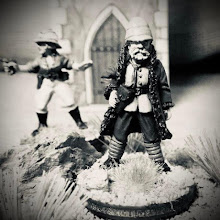 The Battle, by Patrick Rambaud is a historical novel about the Battle of Aspern-Essling which takes place in 1809 as part of the War of the Fifth Coalition. The novel, which is written in French, was awarded the the Prix Goncourt (prize for for French Literature) and another French literature prize the Grand Prix de l'Academie francaise in 1997. Since I don't know how to read French, I read the 2001 translation by Will Hobson.
The Battle, by Patrick Rambaud is a historical novel about the Battle of Aspern-Essling which takes place in 1809 as part of the War of the Fifth Coalition. The novel, which is written in French, was awarded the the Prix Goncourt (prize for for French Literature) and another French literature prize the Grand Prix de l'Academie francaise in 1997. Since I don't know how to read French, I read the 2001 translation by Will Hobson.The Battle of Aspern-Essling is possibly Napoleon's first defeat( depends on the historian - did he lose or was it a draw?). It is obvious that the novel was well researched . . . but, it really did nothing for me. If you know nothing about the War of the Fifth Coalition, if you know nothing about the events of the age, if you know nothing about the Battle of Aspern-Essling - well, you are out of luck. The book just starts, and it just ends with no context of what is happening in Europe or the forces that are at play. In fact, it just seems to be parts of the battle strung together to provide a narrative - but I'm not sure the purpose of the narrative. Though written from a French perspective, it gives you no insight at all about the Austrian personalities or forces.
The novel does follow many French historical figures during the battle, most notably Colonel Louis Francois Lejeune, who during the battle was one of Marshal Berthier's aide-de-camps (ADC). Later (not in the novel) Lejeune would become Marshal Davout's ADC and was later promoted to general de brigade. As a side note, Lejeuene designed the distinctive uniforms with red shakos and red paints that Berthier's ADC's wore and was one of the great battle painters of his age.
In the novel, Lejeune barely has a personality, which is saying a lot considering that none of the other historical figures have a personality. Every French marshal and general in the book seems the same; and, if I did not know who they were, I would not have been able to tell them apart in the plot except for their names. Each marshal or general has facts about them recited to give "background" and they all seem to speak with the same mannerisms and lack of personality.
Rambaud attempts to give what it was like to be a common soldier during the battle; the confusion, the fear and the "why" are we fighting. I don't know. I just did not think it was a good book. I have experienced this feeling before with translated works - maybe the meaning and skill of the book was lost in translation.
I returned the book to the library today and lo and behold, I checked out The Battle, A New History of Waterloo by an Italian writer, Alessandro Barbero, translated by John Cullen. Hopefully this book won't suffer from translation issues.





